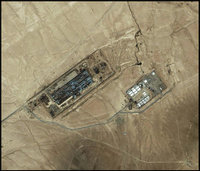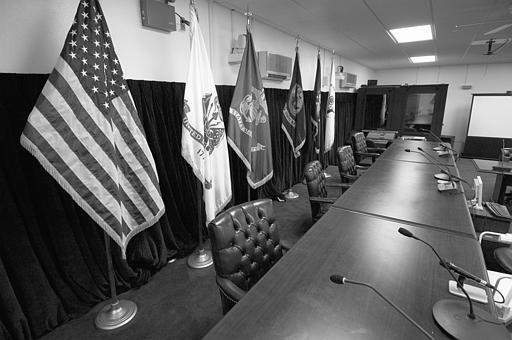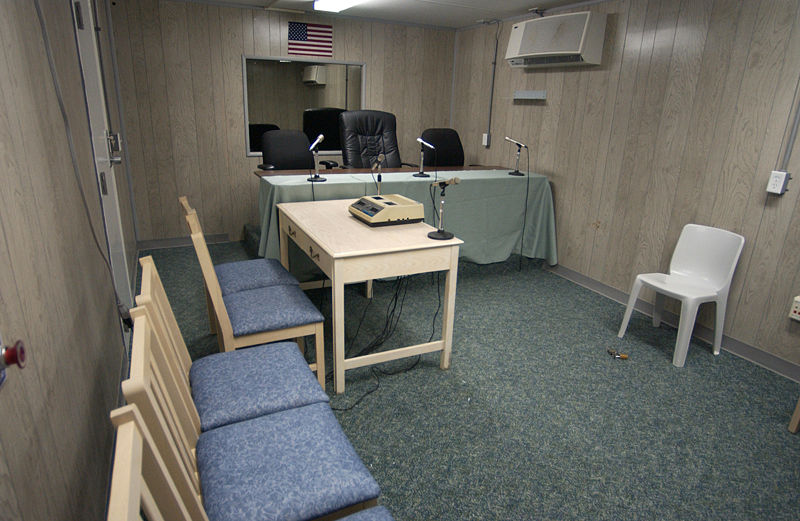Podcast: Play in new window | Download
- Haitian Death Squad Leader Toto Constant Found Guilty of Mortgage Fraud
- Michael Ratner and Lawsuit Against Revolutionary Front For Haitian Advancement and Progress
- Antiwar Activists Win 2 Million Settlement from New York City: Carlyle Group Protest
- A Look At the DNC Protester Prison
- The Trial Of Donald Rumsfeld: A Prosecution By Book, by Michael Ratner
- Human Rights First Unveils Plan for Closing Guantanamo
- New York Times: A New Rush To Spy
Arbitrary Justice: Trials of Bagram and Guantanamo in Afghanistan
Human Rights First and Sahr MuhammedAlly have come out with a powerful report detailing the transfer of Guantanamo and Bagram prisoners to be prosecuted at the Afghan National Detention Facility in Kabul known as Block D. The report is titled Arbitrary Justice: Trials of Bagram and Guantanamo in Afghanistan. Among the details, the report describes that more than 250 former Guantánamo and Bagram detainees have been transferred to Block D, a facility built by the US government to hold and prosecute former Guantanamo and Bagram prisoners.
More than 160 have been referred for prosecution. The detainees are being charged under Afghan law for crimes ranging from treason and destruction of government property to threatening the security of Afghanistan. Defendants have been sentenced to terms of imprisonment ranging from 3 to 20 years, their trials last from 30 minutes to an hour.
![]() Arbitrary Justice: Trials of Bagram and Guantanamo in Afghanistan
Arbitrary Justice: Trials of Bagram and Guantanamo in Afghanistan
Guest – Sahr MuhammedAlly, senior associate in Human Rights First’s Law & Security Program. Through research and advocacy Sahr works on U.S. counterterrorism and national security policies to ensure respect for human rights. Sahr has conducted human rights fact-finding research in Afghanistan, China, Indonesia, Malaysia, and Pakistan.
—-
Teenage Detainees: Mohammed Jawad
We want to bring listeners up to date with the case of Mohammed Jawad. He was captured by Afghan police on December 17, 2002, and handed over to US forces the same day. According to his military defense lawyer, Jawad was briefly held at Bagram Air Base and transported to Guantanamo in January 2003. The same time period as portrayed in Taxi To The Dark Side.
Emi MacLean Interview Notes:
- Mohammed Jawad is facing trial by military commissions, created by executive order.
- Military commissions by executive order: illegal by the Supreme Court decision in Hamdan v Rumsfeld.
- In response to Hamdan v Rumsfeld, Congress passed the Military Commissions Act in 2006
- MCA 2006: Allows for secret trials / secret parts of trials /denying the accused the right to be tried by an impartial court /allows coerced testimony to be used; usually information gathered from being tortured.
Emi Maclean – “If you think the system is deeply, deeply flawed, look again, when the Dept of Defense couldn’t get what they wanted, they fired a judge. In the case of Omar Katr, the judge had ordered the government to produce information about the conditions of his detention and the conditions of which Omar’s statements were made. Even in a situation where the system is in favor of the government, the judge was replaced when that judge ruled against the government.”
Michael Ratner – “Even if Jawad is acquitted by this show trial, the (Bush) administration still says they can hold people indefinitely.”
Guest – Emi MacLean, staff attorney at the Center For Constitutional Rights and with the Guantánamo Global Justice Initiative (GGJI) since June 2006. She works on issues related to Guantánamo and other forms of executive detention, including secret prisons and transfers-to-torture. She helps coordinate the pro bono attorneys representing the hundreds of men still detained at Guantánamo and supports CCR’s direct representation of a number of current detainees.
————————————————————————————————————-


